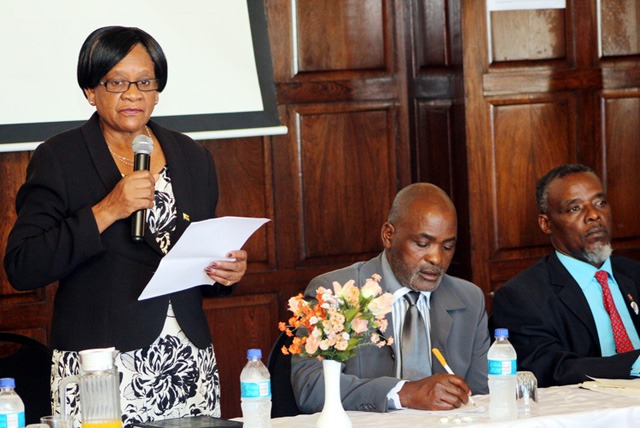THE government has compressed the syllabi for primary and secondary education in order to deal with the effects of Covid-19 lockdowns which have shortened school terms.
Speaking in the National Assembly on Wednesday, Education minister Evelyn Ndlovu, said the measures had been put in place to help students to cover for time lost during Covid-19 lockdowns.
“We have a programme with our development partners where when we saw that there was a challenge because of Covid-19, we revised our syllabus to the shortest time that we could possibly have. We relooked at the syllabus and shortened it. We crushed it so that at least children can catch up faster than the usual teaching period,” Ndlovu said.
The minister said the government had partnered with the ministry of Information and Communication Technology (ICT) to ensure that students in rural areas can easily access modern technologies.
She said there were also ongoing talks with the United Nations Children’s Fund (Unicef) to provide assistance with computers to rural areas while plans are afoot to set up solar plants to generate electricity in the remote areas.
“I had a meeting with Unicef discussing the issue of computers in schools and that we want to make sure that where there is no electricity, we come up with a programme to fit solar power in rural areas so that children can have access to computers,” Ndlovu said.
She also revealed that they were working on recording radio lessons for use by teachers in rural areas which have no access to radio lessons, electricity for computers and the internet.
This comes as the country’s examinations pass rate has been declining since the advent of the Covid-19 pandemic, particularly for Ordinary Level
Last week the Zimbabwe School Examinations Council (Zimsec) yesterday released the long-awaited 2021 ‘O’ Level results showing a marginal 1.57 percent increase in pass rate to 26.4 percent from the 24.77 percent recorded in 2020.
Out of the 249 914 who sat for the November examinations, 163 179 candidates wrote five and more subjects out of which only 42 985 passed.
In 2020, a total of 184 249 candidates wrote five or more subjects and 45 644 passed giving an overall percentage pass rate of 24.77 percent.
Although the pass rate showed a mere increase from 2020, it still remained considerably lower than that of 2019.
Zimsec attributed last year’s poor showing by learners to Covid-19 effects on learning. By Brandon Josphat josphatbl@dailynews.co.zw


